- The 2020 MINI John Cooper Works Clubman and Countryman receive a more powerful engine.
- Updates to the all-wheel drive system and transmission increase overall performance and agility.
- Based on the available data, the new John Cooper Works variants look like they are a blast to drive.
Some of the fine yet crazy engineers at BMW, MINI’s parent company, decided to have a seriously unhinged go at the latest John Cooper Works variants, the Clubman and Countryman. They tweaked the chassis and other such bits, but all that is kind of beside the point when you look at what they did to the engine. The new four-cylinder uses BMW’s patented TwinPower Turbo technology to crank out a staggering 301 horsepower and 331 ft-lb. of torque.
2020 MINI John Cooper Works: Power Jumps & Faster Times
No, overall, those aren’t huge numbers, but in a car this small, and from only a 2.0-liter engine, they are massive. In case you’re interested, that’s a 73 horsepower bump over the previous version – which, in and of itself, is an impressive jump. The new MINI John Cooper Works Clubman hits 62 mph in 4.9 seconds, 1.4 seconds faster than the previous model; the new Countryman hits 62 mph in 5.1 seconds, 1.5 seconds faster than the outgoing version. Also – if I’m remembering this right – the Clubman and Countryman are two of the heaviest MINIs you can get. Imagine this same drivetrain in the smallest, lightest one they make?
Anyway, back to the engine.
Component Revisions & Compression Ratio Drops
The engine is based on the 2.0-liter from the MINI Cooper S Clubman and Countryman but with model-specific modifications. For example, BMW was able to get this big jump in power by reinforcing the crankshaft, and extending the cross-section of the main bearing. The John Cooper Works models receive special con-rods and pistons, and a new “vibration damper with optimized cooling.” I know. Does that mean the engine cooling has been redone, or does that mean they have optimized the cooling for the vibration damper? It has to be the first one, right?
Tell me this thing isn’t somehow thermally overloading the vibration dampers.
Since the model’s turbo is bigger, the compression ratio drops from 10.2 to 9.5 – think about it for a bit and you’ll understand why. On top of that, the turbocharger is integrated in the exhaust manifold and fitted with a blow-off valve to increase responsiveness. The air intake duct has also been reworked, or as MINI puts it, “de-throttled” as far as possible. MINI’s new direct injection system uses multi-hole fuel injectors, arranged between the valves to increase flow rate. In short, the injectors produce better vaporization and higher pressures for cleaner combustion and greater efficiency.
And, since this is a BMW engine, fully-variable valve control (similar to BMW Group’s VALVETRONIC system) and variable camshaft control (like BMW’s VANOS) are helping things along.
Related: The car built for everyone: walking through MINI’s history.
Keeping It Cool
The cooling system is completely new as well, with a focus on optimum running temperature for the engine, even at the track. There are two external radiators, a model-specific expansion tank with increased volume, an independent cooling module mounting, an electric ventilator (also with higher output), and a condenser. The transmission has its own cooling circuit and external oil cooler. If you read between the lines, this essentially says: This engine runs hotter than a pistol! It might be worrisome in the future (Lord knows how long a little engine squeezed this hard can stand up to the pressures and temperatures) but why worry about it while it’s under warranty?
The bad news is that speed is electronically-limited to 155 mph. Which is, let’s face it, really fast for a car the size of a stove. But also: BOO, speed limiters, boo I say!!
Transmission Tech: Autocross Here We Come!
Ah yes, the transmission. All that power and torque hits the pavement through an eight-speed Steptronic transmission. A new control unit increases the gear shift dynamics and driving comfort, so says MINI. The steering wheel features shift paddles for manual gear selection. Yay! And even more yay: there’s a launch function. AutoX and rally stages here I come!
This new transmission features a mechanical differential lock for the front wheel. According to MINI, it functions transversely to reduce the speed compensation between the front wheels. Under load conditions, this tallies up a locking effect of 39 percent MINI says. It essentially works like this: Should one tire begin to spin, the locking effect transfers the torque to the other wheel to increase traction. It’s also worth pointing out the diff is interconnected with the Dynamic Stability Control (DCS) to aid traction on loose terrain, or in poor weather conditions. If you are on the track, it’s useful when accelerating out of a corner.
Related: It was a time of peace, rejuvenation, and tiny cars. And the MINI ruled.
All-Wheel Drive: Configuration & Layout
It’s no surprise the new John Copper Works variants are all-wheel drive. This makes sense, because think about putting over 300 horsepower through just the front wheels. The torque steer would be lethal! The all-wheel drive system, known simply as “ALL4” is compact and weight-optimized, according to MINI. A power take-off resides on the front axle’s transmission, with a two-section prop-shaft in the middle, and an electro-hydraulically regulated clutch at the rear. Did you get all that? The ALL4 system’s controller also works with the DSC; because what other way would a bunch of German engineers do it?
Similar to how the locking effect works in the transmission, if the DSC controller detects front wheel slip, within a fraction of a second, the hang-on clutch will transfer torque to the rear wheels via the electro-hydraulic pump. Bottom line: engine power is always channeled to the corner that needs it most. Now, combine this with the long wheelbase and low center of gravity; reinforced body structure and larger air inlets; new swivel bearings to improve camber values on the front wheels; and increased spring rates for the engine and transmission bearings, and you have a MINI that is a blast to drive.
Pricing & Availability
There is a full suite of modern infotainment goodies in the cabin, but really, I don’t care. The only thing that really matters about these John Cooper Works variants is all that power, and how it gets to the ground quickly, effortlessly, and efficiently. The only thing that remains a mystery is how much.
Oh sure, performance like this costs money, but like other recent John Cooper Works variants, I bet they will be about what an used Corvette goes for. The current Clubman starts at $35,900 with the Countryman coming in at $37,900. Still, it does make you think, don’t it?
Expect the 2020 MINI John Cooper Works Clubman and Countryman later this summer.
Tony Borroz has spent his entire life racing antique and sports cars. He is the author of Bricks & Bones: The Endearing Legacy and Nitty-Gritty Phenomenon of The Indy 500, available in paperback or Kindle format. Follow his work on Twitter: @TonyBorroz.
Photos & Source: MINI USA.
from Automoblog.net http://bit.ly/2Xjrjry
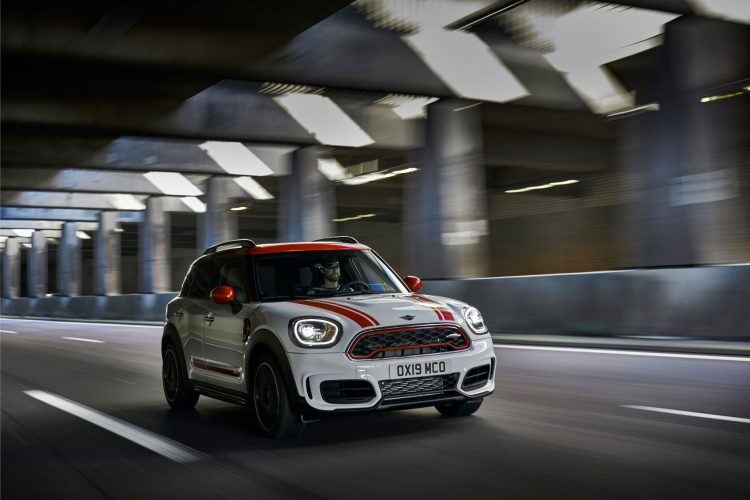
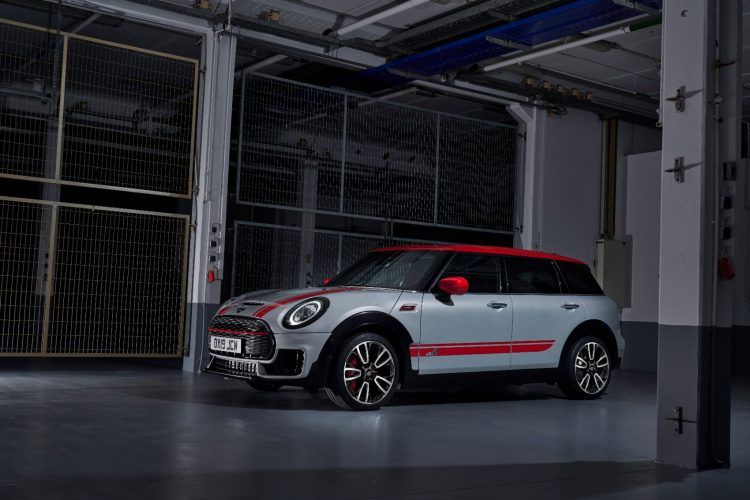
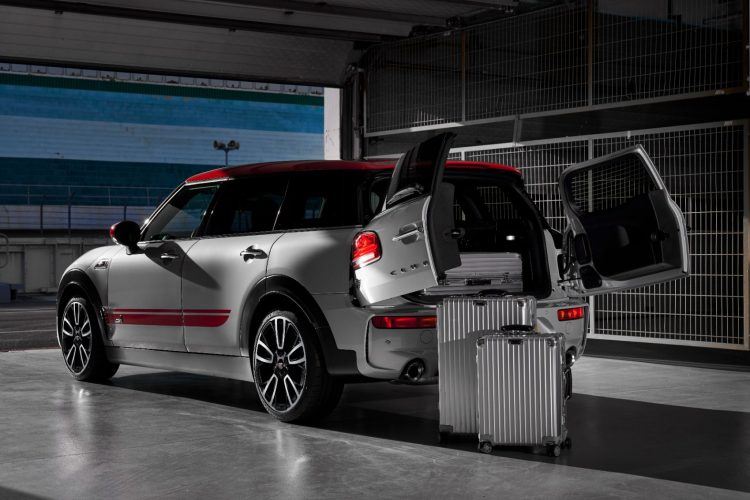
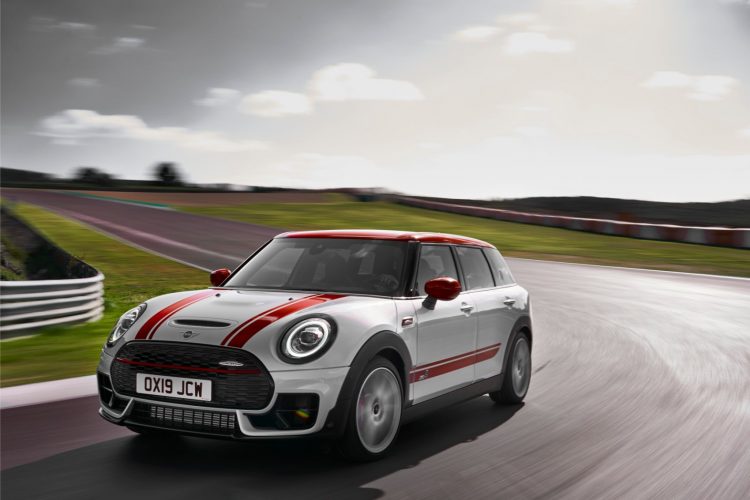
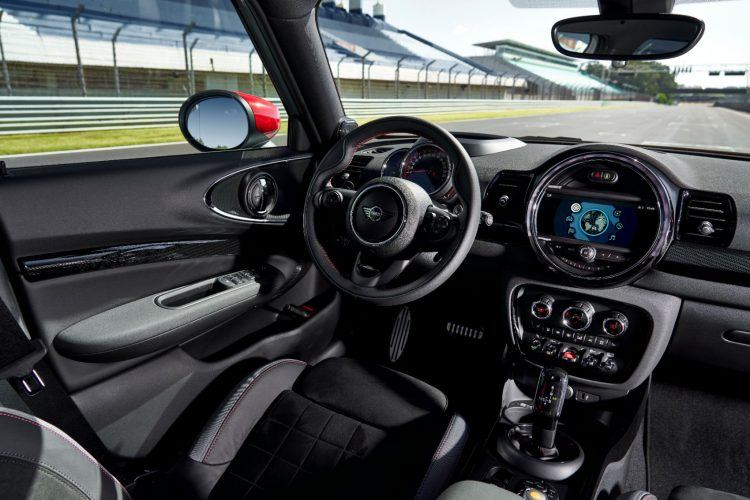
No comments:
Post a Comment